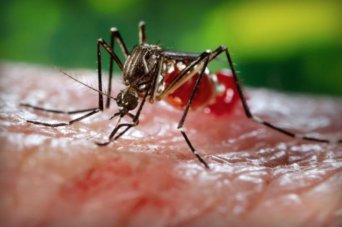- About
- Topics
- Picks
- Audio
- Story
- In-Depth
- Opinion
- News
- Donate
- Signup for our newsletterOur Editors' Best Picks.Send
Read, Debate: Engage.
As we reported in our dossier "Malaria, still a Threat", about 500,000 children die from malaria every year – one child every minute – mainly in Africa. And in fact, half the world's population live in areas at risk of infection.
Hence, millions of children in sub-Saharan Africa could benefit if European regulators and the WHO recommend the world’s first malaria vaccine called Mosquirix.
While, as we reported, the Max Planck Institute in Potsdam has been intensely researching on more cost-effective methods to produce malaria medication, the pharmaceutical company GlaxoSmithKline (GSK) started the research on a vaccine in the late 1980s. It has been partly funded by the Gates Foundation, providing more than $200m in grants since 2001 reports the Guardian. GSK itself has invested more than $365m and expects to spend a further $200-250m until development is completed.
According to The Verge some scientists are concerned that the potential costs associated with such a complex and somewhat ineffective vaccine may outweigh the benefits. Still, Africa is in desperate need for a malaria vaccine, even if it's only partially effective.
Brian Greenwood, professor of clinical tropical medicine at the London School of Hygiene and Tropical Medicine, who has been involved in the project for two decades, has described the vaccine as “imperfect”, but nonetheless experts have hailed it as an important breakthrough. It was tested across 11 different African sites.
There were 198 million malaria cases in sub-Saharan Africa in 2013, so even a partially effective vaccine could prevent millions of cases, Greenwood said.
Image: The Verge
